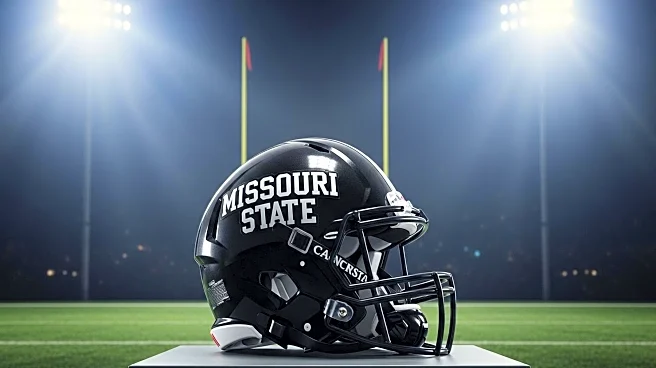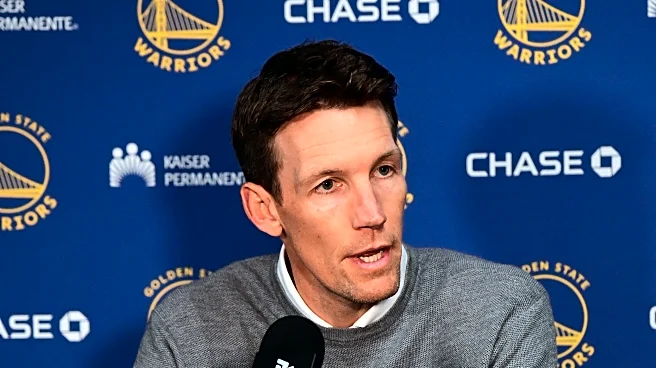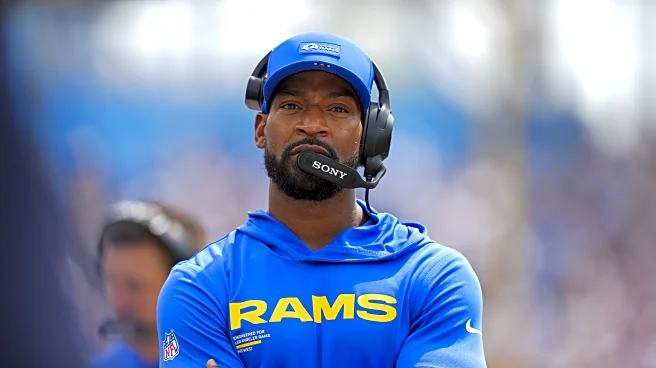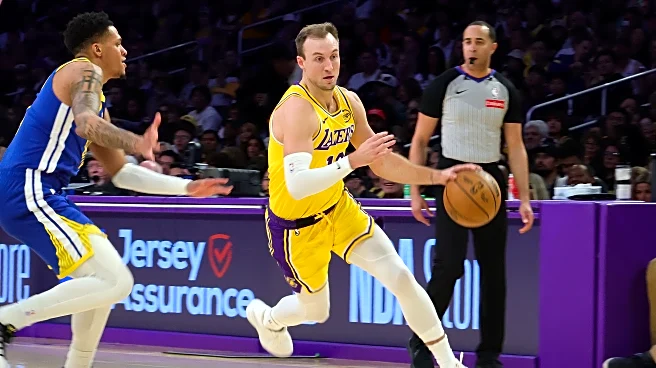What's Happening?
Missouri State's football team achieved a significant milestone by securing their first win as an FBS program, defeating Marshall 21-20. The game took place in Huntington, West Virginia, where Missouri State quarterback Jacob Clark played a pivotal role. Clark threw for three touchdowns and 359 yards, leading a decisive nine-play, 80-yard drive that culminated in an 8-yard touchdown pass to Jeron Askren with just over two minutes remaining. Missouri State's defense then held strong, forcing Marshall to turn the ball over on downs, allowing Missouri State to run out the clock. This victory ended Marshall's nine-game home win streak and their 15th consecutive home opening win.
Why It's Important?
This victory marks a historic moment for Missouri State as they transition into the FBS level of college football. The win not only boosts the team's morale but also enhances their reputation in the competitive landscape of college sports. For Missouri State, this success could lead to increased recruitment opportunities and greater visibility in national rankings. The defeat for Marshall, on the other hand, breaks their long-standing home win streak, potentially impacting their season momentum and strategy moving forward.
What's Next?
Following this victory, Missouri State will likely focus on building upon their success as they continue their season. The team may face heightened expectations and pressure to perform consistently at the FBS level. For Marshall, the loss may prompt a reassessment of strategies and player performance to regain their footing in upcoming games. Both teams will be looking to capitalize on their strengths and address weaknesses as they progress through the season.
Beyond the Headlines
The transition of Missouri State into the FBS level reflects broader trends in college sports where institutions seek to elevate their programs for greater competitive opportunities and financial benefits. This move can influence the dynamics of college football, affecting scheduling, rivalries, and media coverage. The implications extend beyond sports, potentially impacting university branding and student engagement.










